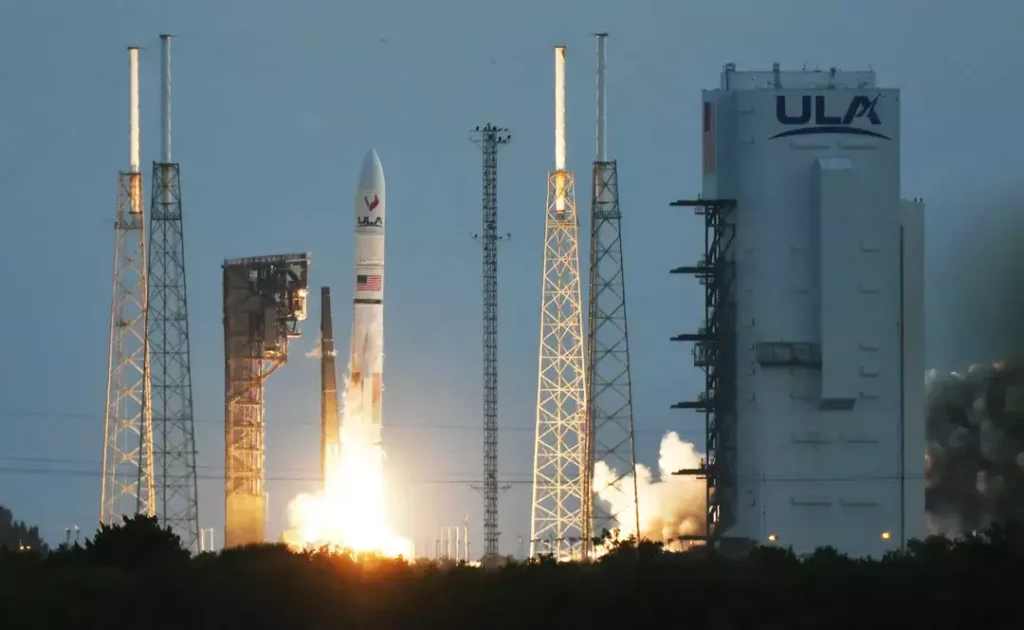
ULA, Ariane Launches Challenge SpaceX’s Market Dominance
SpaceX has been the undisputed leader in the global satellite launch market for quite some time now. The company has flown over 130 successful Falcon launches in 2024 alone, which accounts for half of all global flights. However, it seems that the company’s dominance is about to be challenged. United Launch Alliance (ULA) and ArianeGroup have announced that their Vulcan Centaur and Ariane 6 rockets are ready to take flight, and they aim to chip away at SpaceX’s lead in orbital missions.
The launch of these rockets marks a significant milestone in the space industry, as it signals the beginning of a new era of competition in the market. For years, SpaceX has been the go-to company for satellite launches, and its dominance has been unchallenged. However, with the launch of ULA’s Vulcan Centaur and ArianeGroup’s Ariane 6, the landscape is about to change.
The Vulcan Centaur is a heavy-lift rocket that is designed to launch payloads into geosynchronous orbit. It is powered by two BE-4 engines, which are manufactured by Blue Origin, a company founded by Jeff Bezos. The rocket is capable of launching payloads of up to 56 metric tons into orbit, making it a strong competitor to SpaceX’s Falcon Heavy.
The Ariane 6, on the other hand, is a more versatile rocket that is designed to launch payloads into a variety of orbits. It is powered by two Vulcain 2 engines and is capable of launching payloads of up to 22 metric tons into geosynchronous orbit. The rocket is designed to be more cost-effective than its predecessor, the Ariane 5, and is expected to be a popular choice for satellite operators.
The launch of these rockets is significant not just because it marks the beginning of a new era of competition in the market, but also because it signals the growing demand for satellite broadband services. As the world becomes increasingly connected, the demand for high-speed internet is growing, and satellite broadband is seen as a key solution.
SpaceX’s Starlink is one of the leading satellite broadband services in the market, and it has been a major driver of the company’s success. However, with the launch of ULA’s Vulcan Centaur and ArianeGroup’s Ariane 6, SpaceX is likely to face increased competition in the market.
Blue Origin, the company founded by Jeff Bezos, is also making progress in the satellite launch market. The company has announced plans to launch a new rocket, the New Glenn, which is designed to launch payloads into orbit. The New Glenn is expected to be a major competitor to SpaceX’s Falcon 9, and it could potentially challenge the company’s dominance in the market.
Rocket Lab, another company that is making progress in the satellite launch market, has also announced plans to launch a new rocket, the Electron. The Electron is a small rocket that is designed to launch small payloads into orbit, and it has already been used to launch several satellites into space.
The European Space Agency (ESA) is also making progress in the satellite launch market. The agency has announced plans to launch a new rocket, the Ariane 6, which is designed to launch payloads into orbit. The Ariane 6 is expected to be a major competitor to SpaceX’s Falcon 9, and it could potentially challenge the company’s dominance in the market.
In conclusion, the launch of ULA’s Vulcan Centaur and ArianeGroup’s Ariane 6 rockets marks a significant milestone in the space industry. The rockets are designed to launch payloads into orbit and are expected to challenge SpaceX’s dominance in the market. With the growing demand for satellite broadband services, the competition in the market is likely to intensify, and it will be interesting to see how the companies respond to the challenge.






